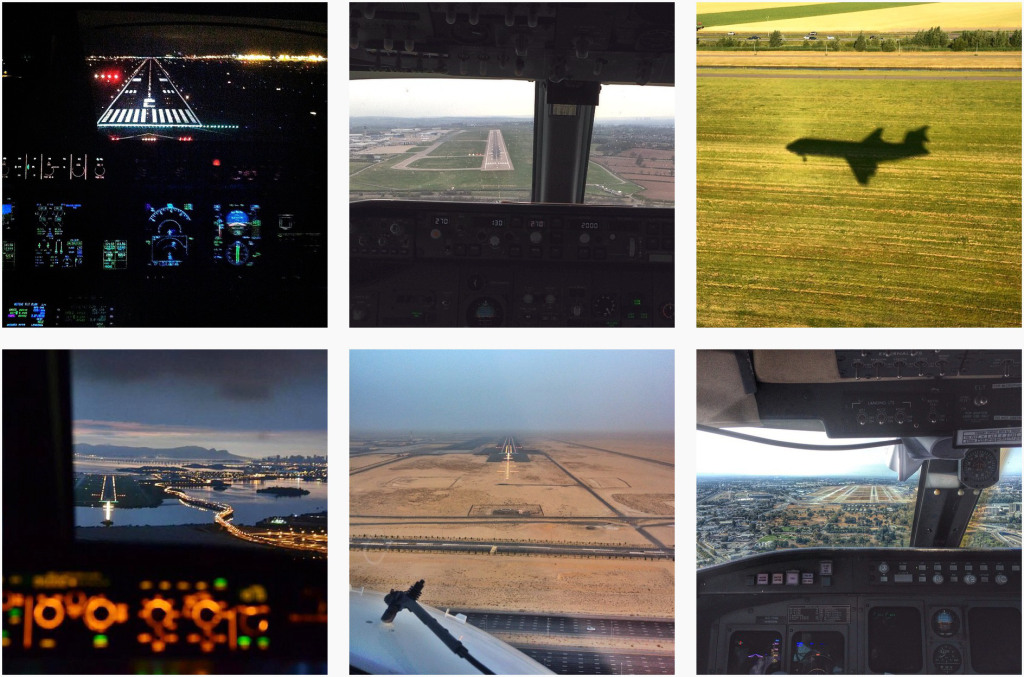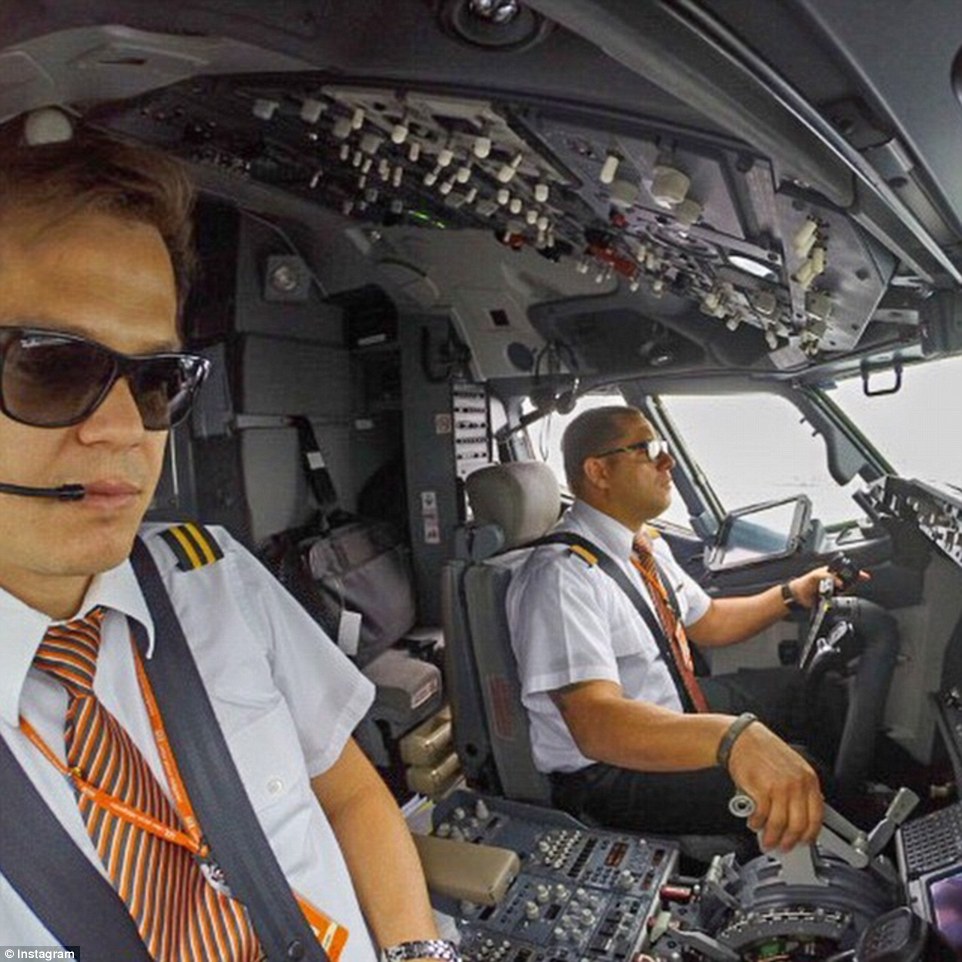Pilot In Deadly Crash Repeatedly Took Selfies Leading Up To The Fatal Accident
In an age of digital distractions, the lethal risks of driving — or just crossing the street — while looking at a cellphone have been well-documented. Now comes a new peril from mixing transportation and obsession with devices: a fatal airplane crash most likely caused by selfies, reported the New York Times.
A 29-year-old pilot who died when he crashed his small aircraft near Denver, Colorado, in May 2014, was distracted because he was taking selfies in the cockpit, likely contributing to the fatal accident, US investigators concluded on Tuesday, 3 January
Photo of the downed aircraft. pic.twitter.com/9HahURSFZE
— Adams Sheriff's Page (@AdamsCoSheriff) May 31, 2014
US government investigators found no sign that anything was wrong with the plane, which plunged into the ground, killing the pilot and his passenger shortly after midnight on 31 May 2014
The wreckage of a crashed Cessna 150 aircraft lies in a field near Watkins, Colorado on 31 May 2014. The pilot had been taking selfie pictures with a cellphone shortly beforehand.
Image via abcnews.com“It is likely that cellphone use during the accident flight distracted the pilot and contributed to the development of spatial disorientation and subsequent loss of control,” the safety board said in a report last week. Investigators found no sign that anything was wrong with the plane.
The pilot, Amritpal Singh, had used a GoPro camera to record few short flights he made with different passengers onboard his two-seat Cessna 150. While he did not record the fatal trip on 31 May, he did record a 6-minute jaunt shortly before it, NYT reports.
“The GoPro recordings revealed that the pilot and various passengers were taking self-photographs with their cellphones and, during the night flight, using the camera’s flash function during the takeoff roll, initial climb and flight in the traffic pattern,” the report said.
Investigators said the plane made two back-to-back flights, one inside a traffic pattern with a safe landing, and a second when Singh crashed.
During the first flight, when the Cessna landed safely, investigators say footage from a GoPro video camera found on scene showed Singh and his passenger taking “self-photographs” with cellphones. The second, fatal crash was not recorded by the GoPro.
During the second flight, as the Cessna reached 740ft, the aircraft made a sharp left turn and began to spin downward, possibly stalled out. The plane crashed into an open field below, killing Singh and his passenger, and destroying the Cessna.
"Distractions from personal devices are in all modes of transportation, we're seeing that more and more. But the selfies in an airplane, that's something new for us," said a spokesman for the National Transportation Safety Board. It's the first time the safety board has blamed a plane crash on the pilot taking photos.
Distracted driving is a factor in more than 3,000 traffic deaths annually in the United States, and about one-tenth of those involve cellphones, according to the Department of Transportation.
Several train accidents have also been blamed on engineers paying attention to their phones, including the 2008 collision of two trains in Los Angeles that killed 25 people.
So it seemed inevitable that the scourge of distraction by electronic devices would move into the skies.
However, this isn't a stray case. In 2009, the pilots of a Northwest Airlines flight from San Diego to Minneapolis were so busy using their personal laptops to figure out their work schedules, notes NYT, that they overshot their destination by more than 161 km.
The pilots told the National Transportation Safety Board that they missed their destination because they had taken out their personal laptops in the cockpit, a violation of airline policy, so the first officer, Richard I. Cole, could tutor the captain, Timothy B. Cheney, in a new scheduling system put in place by Delta Air Lines, which acquired Northwest last fall.
nytimes.comIn 2014, the Federal Aviation Administration banned the use of personal electronic gadgets in plane cockpits, but some pilots have not given up the habit of posting on Instagram scenic photos they took 7 miles aloft. The ban does not apply to private pilots.
Some US pilots addressed the US Federal Aviation Administration (FAA), when it was considering the rules on the use of electronic devices in the cockpit, and said that gadgets were actually only contributing to flight safety, as they helped the crew cope with boredom and consequently loss of concentration. The FAA remained unconvinced and banned all use of electronic devices by pilots in the cockpit in February 2014.
The ban does not apply to private pilots, who often use tablet computers, and even phones, running software for navigation, weather forecasts and flight planning, reported the New York Times.
An airplane is most vulnerable during the kind of low-altitude, low-speed maneuvering pilot Amritpal Singh was doing. After the "selfie accident", many pilots in the US said they would never take a selfie in that time, when absolute attention is needed.
“It’s the critical stage of flight,” said Bill Zempel, 49, a private pilot and airplane mechanic, taking a cookie break amid three single-engine planes. “That’s bad decision-making.”
But he and a colleague, Kiki Winchester, admitted to the occasional self-portrait — taken, they said, once they are at a safe altitude and the plane is cruising. “We’ve got lots of pictures of ourselves in the planes,” said Ms. Winchester, 41.
Meanwhile, cockpit photography is increasingly popular among pilots. Quartz recently did an investigation into commercial airline pilots, who are prohibited from using their phones while flying, who became famous on Instagram for posting photos of the skies.
In December, Quartz detailed the trend among commercial airline pilots, who are generally prohibited from using their phones while flying. Many pilots find the practice harmless, but safety experts say even a few moments of distraction in the cockpit can be dangerous.
One airline pilot featured in Quartz's story posted a photo of himself to Instagram with the caption, "About to land this plane but first, #lmtas," shorthand for "let me take a selfie"
Regulators in the US, UK, and EU require that pilots maintain a “sterile cockpit” from the moment they pull away from the gate until the plane is at cruising altitude or above 10,000 feet (3,000 meters), and again on the way down until the plane is parked.
During those periods, pilots must focus on “essential operational activities.” They can’t read, eat, drink, or talk about anything unrelated to operating the plane. They certainly can’t take photos, yet Quartz found many examples on Instagram of photos seemingly taken from a pilot’s seat while a commercial airplane was landing.
In its in-depth report, Quartz monitored hundreds of Instagram accounts over 6 months and posted a collection of photographs and videos taken by pilots in the cockpit midflight. Many of which captured during critical phases of flight, like takeoff and landing.
This is your captain being vain: Pilots for airlines large and small, flying planes of all sizes, seem to be violating the safety rules, taking photos with their phones as well as GoPro cameras mounted inside the cockpit.
Image via dailymail.co.ukFurthermore, the pictures show pilots around the world blatantly disregarding the need for a 'sterile cockpit', when only matters directly affecting the flight are supposed to be discussed.
Quartz spent almost half a year trawling through the Instagram accounts of flight crews looking for instances of pilots taking pictures on the flight deck. A number of the crew ended up closing down their accounts after being contacted by the website.
Airlines including British Airways and Jet Blue responded stating that their flight crews are trained to the highest standards and know to avoid unnecessary distractions. Pilots have also argued that the taking of pictures or video does not distract from an otherwise complicated job. Pushing a button to open a shutter is possibly the least complicated thing they would do during a flight.
Pilots are prohibited from using most personal electronic devices, even at cruising altitude when the plane is on auto-pilot, to ensure they stay focused on flight duties, but this pilot appears to have everything under control.
Image via dailymail.co.ukBut before you go judging the picture-taking pilots, the case against them isn't exactly 100 percent clear-cut. For one thing, off-duty pilots and crew members sitting in the cockpit's jump seat are allowed to use electronic devices, reported Yahoo!
Pilots argue that they would prefer rules that better balanced between managing boredom and safety.
Image via dailymail.co.ukAnd Quartz points out the rules don’t apply to planes with no passengers, and it’s impossible to determine if those pics were taken with paying passengers on board.
Some pilots are calling for the rules to be loosened, saying pilots need something to entertain them during long-haul flights when plane operations are mostly automated. But former airline pilot and licensed therapist Tom Bunn — who counsels people with a fear of flying — disagrees.
“Being on the lookout for a good picture instead of taking care of business is, even when not snapping a picture, a diversion of attention,” he tells Yahoo Travel.” “Photography … is not what a pilot is there for or is getting paid for.”
Comment to let us know your views about pilots taking photos from cockpit midflight? You can even Facebook or Tweet us.






